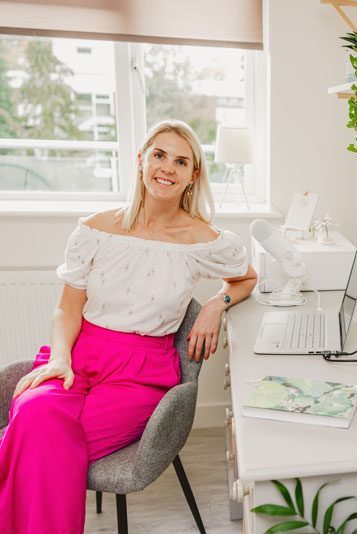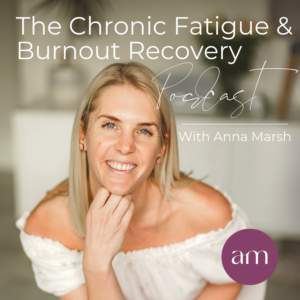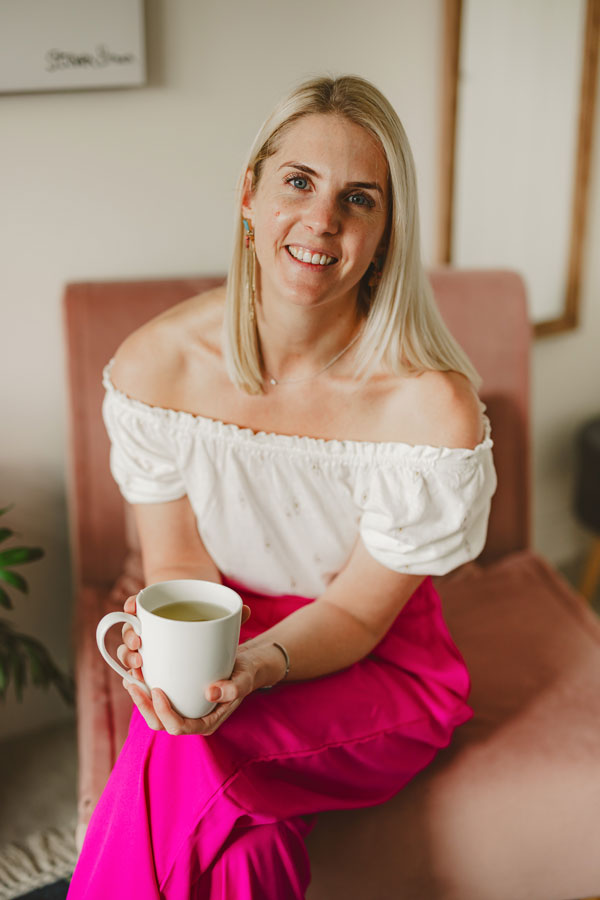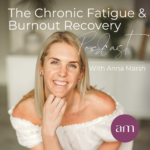
Shownotes
Getting enough sleep is important and additionally, there is an increasing body of research which supports that circadian rhythms play an important role in regulating human physiology. In this episode Anna talks through how circadian rhythms impact the immune system and lifestyle practises that you can cultivate to modulate your immune system and sleep better.
Useful links:
Website: https://annamarsh.co.uk/
Instagram: https://www.instagram.com/anna_marsh_nutrition/
Fatigue Recovery Quiz: https://app.annamarsh.co.uk/quiz
Join the High Achiever Revival Program (HARP): https://annamarsh.co.uk/harp-2/
Work with me intimately in my 1:1 Fatigue Recovery: https://annamarsh.co.uk/1-1/
Mini Courses: https://annamarsh.co.uk/courses/
How to Have a Good Night Sleep
Welcome back to the chronic fatigue and burnout podcast. I am your host Anna Marsh, and today, I’m going to be talking about all things sleep, specifically what you want to be thinking of and how you can support your body to get a good and restful night’s sleep. We all know that we feel so much better, and life feels much more manageable when we have had a good sleep.
Unfortunately, many of us, whether we have a chronic health condition or not, can still really struggle with sleep. So the purpose of this podcast today or this episode today, shall I say, is to give you an overview of how the body’s sleep rhythms work. And then talk a little about things you could think of as you work to support your body to optimize those rhythms.
I’ll also be throwing in some Chinese medicine philosophy because it’s interesting. We will be talking about sleep practices or some supplements that could be supportive, the use of light exposure, whether you should be napping in the afternoon, and a little bit about the immune system and how that can impact sleep. Where I would like to begin is helping you first and foremost to understand the importance of healthy biorhythms.
For your cells to function properly, they need the right materials in the right place at the right time. Healthy functioning cells are likely to produce energy in the form of ATP much better than unhealthy cells. There are 1000s of genes which have to be switched on and off in a specific order, and proteins, enzymes, fats, carbohydrates, hormones and other compounds have to be absorbed but broken down, metabolized and produced in a specific rhythm.
Energy must be obtained and then distributed appropriately to allow for growth, reproduction, metabolism, locomotion, and cellular repair. When this network of systems is disrupted, your biology becomes compromised. This is what is experienced as poor health.
So disruption to the workings of our inner biology, our inner biochemistry, is created when our circadian rhythms are disrupted through our light and dark exposure in our sleep and wake cycles. It is the disruption of our natural circadian rhythm that can impact sleep. Still, it can also have a knock-on effect on impacting blood sugar regulation, the immune system and, therefore, inflammatory responses, neurology, the health of our brain and how fast we age.
Two main hormones govern these internal biorhythms. The first one is cortisol, which is the stress hormone. You may already be familiar with cortisol. The second is melatonin. A healthy person will naturally experience what is known as a cortisol awakening response, also abbreviated as a CAR.

This is saying that this cortisol awakening response is a surge, or shall we say, a peak in cortisol, which should occur 30 to 60 minutes after waking. So if you’re doing testing, for example, you can do a cortisol saliva test. You can measure your cortisol first thing as soon as you wake up and open your eyes 30 minutes later and 60 minutes later, and then you can understand whether you produce this CAR, this cortisol awakening response.
This is included in some adrenal saliva stress testing. It’s also included in the Dutch comprehensive hormone testing, with CAR’s cortisol awakening response. So if this is something that you want to test, that’s how you can test it.
Cortisol is a mobilizing energy hormone, so it’s your get up and goes to start the day. It can mobilize stored energy in your muscles and your liver; doing so will give you the energy to get up and get going. If you’re a morning person like myself, you probably feel your best in the morning and you have this strong get up and go and motivation and energy to start the day.
Cortisol should peak 30 to 60 minutes after waking, reaching its lowest point at about 2 AM. Then on the other side of the spectrum, we have melatonin, the body’s sleep hormone. Melatonin rises in response to the onset of darkness, and adequate production supports good sleep.
If you live in the UK, like me, come December, when it starts getting dark at four o’clock in the afternoon, there is this tendency may be to feel more sleepy and want to go to bed a bit early, and that’s likely because of the influence of the light on our melatonin levels. It’s noteworthy that there is a relationship between cortisol, melatonin and the immune system. Cortisol is anti-inflammatory, so if you’ve ever had a cortisone injection, or you know someone who’s had a cortisone injection, you would usually have that when there’s a joint which may be inflamed, and sometimes someone will have a cortisone injection to reduce inflammation in the joint because cortisone is the inactive metabolite of cortisol.
We can convert cortisone into cortisol, and then it can have anti-inflammatory activity. On the flip side, melatonin can be pro-inflammatory or anti-inflammatory, depending on the context. Generally speaking, the immune system is more active at nighttime, and if you’ve ever had a virus or cold or flu, you probably know that you feel the worst.
You might feel okay during the day. Then you start to feel a bit rougher at nighttime or towards the evening. Then maybe when cortisol kicks in, in the morning, you feel a little bit brighter, a little bit better and then, you know, as the day draws to a close, you may feel a little bit worse again.
That’s been my experience as I’ve moved through my chronic fatigue journey is, sometimes I would wake in the early hours of the morning, and my body would just feel so sore and achy, that feeling you might have if you have the flu, and I would just think, “Oh my gosh, do I have the flu or something wrong with me?” Or I would think, “Oh, today’s going to be a bad day. I can already feel this inflammation in my body.”
But then actually, come morning, I would get up and start my day and maybe move around a bit, or go down to the beach and get some cold water exposure, or things that would naturally increase my cortisol levels, the light exposure, being outside the movement, the cold water. And then I think, “Oh, I don’t feel that bad; today’s not going to be as bad as what I thought it was.” And that was just a clear example of the role of cortisol as an anti-inflammatory hormone, how it fluctuated depending on the time of the day, and how that was also impacting how I was feeling due to how it impacted my immune system.
I know we’re talking about sleep today but it’s also really interesting to understand the importance of these biorhythms in the context of sleep. So a healthy biorhythm should have this peak in cortisol 30 to 60 minutes after waking, cortisol should drop off in the evening, and then we should produce melatonin. That melatonin response should help us then fall asleep.
That’s in a perfect scenario, but what can often go wrong is that many of us, not necessarily all of us, but many of us aren’t getting or don’t have lifestyle habits which support that morning peak in cortisol. We may also expose ourselves to blue light or lights in the evening, influencing melatonin production. We’re probably also doing things that are keeping our cortisol levels elevated into the evening.

It may or may not seem obvious, but to get a good night’s sleep, we want to support the cortisol peak in the morning. We want to support the natural rise in melatonin in the evening. That is where I’m going to start when I talk about optimizing sleep or creating a good night’s sleep.
Often people aren’t thinking about what they’re doing in the morning and how that’s influencing their sleeping in the evening. But you want to start in the morning when it comes to optimizing your sleep routine. Here we want to think about doing things to encourage that cortisol peak.
The first thing you want to consider is your morning light exposure. This isn’t the lights in your home, nor the lights from your computer screen. It isn’t light streaming through a bedroom window or in the car. If you’re driving somewhere, this is daylight from outside. Essentially, you get in your body, your head, or your face outside within 60 minutes of waking, ideally as soon as you wake up, but some people take a little time to get going.
So within 30 to 60 minutes of waking, you don’t need a lot, but you do need some. If you wake up and it is a beautiful, bright, clear morning, you only need about five minutes of light exposure. If it’s kind of light cloud cover a bit cloudy, then maybe you need about 10 minutes.
And if you have like dense cloud cover, even if it’s raining, you still want to get outside, but unfortunately, for a little bit longer in the rain, 20 to 30 minutes. If you have a balcony, if you have a garden, if you have some green space near your home, if you can get outside and get that morning light exposure, if you can get more if you can spend more time outside during the day, just naturally experiencing daylight, that will also be great. But the minimum would be five minutes on a clear, bright sunny morning and then 20 to 30 minutes on a cloudy, rainy day.
That’s the very first thing, and the reason is that the light and the quality of the light falling on your eyes will be stimulating for that cortisol peak. If you wake up in the darkness, you can turn on lights in your home or use other artificial bright lights. For example, you can buy a 10,000 lux light box on Amazon or something like that.
But then, as soon as the sun does come up and you can get outside, you also want to use that opportunity. If you miss a day for whatever reason, you were sick or busy, or just for some reason, you couldn’t get outside, do a little extra the next day. So that’s the first thing if you want morning light exposure.
Here I have a lot of clients who struggle to get going in the morning; they’re dragging their feet. Especially if there is pain and fatigue, it is harder. You are the people who, although it’s harder, really need to do this because this is helping to turn on those anti-inflammatory signals, which will help you feel better.
That’s the first thing; then, we can also do other things to stimulate cortisol first thing in the morning. The second thing you could think about is movement. Again, always tricky with fatigue because different people have limited capacity.
But even if you’re able to do a short walk within your capacity, if you’re able to do more than a short walk or long walk or run or some other exercises outside, even better. If there is a way for you to do some movement first thing in the morning, that’s also going to help to raise the morning cortisol. You can also think about cold exposure.
Now, this doesn’t have to be outside, but you could do something, and I could get a cold shower for just two or three minutes under the cold tap. If you are blessed like me to live near the ocean, and you can walk down to the ocean in the sunlight and get your cold water exposure all in one go, that’s ideal. I’m very fortunate that that is my morning routine but I know that that’s not always available to everyone so just do what you can.
The final thing you could consider would have a caffeinated beverage. Again coffee has different levels of sensitivity for different people. In some of the worst parts of my chronic fatigue journey, I couldn’t tolerate coffee may be too jittery to activate my nervous system far too much, so it wasn’t an option for me.

But as I said I had morning light exposure walking and the sea to jump in even in winter so I felt I didn’t need the caffeine. But a little bit of caffeine in the morning, I would say it, probably wouldn’t be my first choice. I will probably try and do the exercise and the cold exposure before I start drinking coffee but it is an extra little tool in your toolbox that you can use.
All these things in the morning can set you up for the day to support that cortisol release, which is anti-inflammatory. It’s helping to modulate your immune system. It helps to switch things on and off and organize your chemistry and physiology for the day.
Even though we’re talking about sleep, we start a good night’s sleep in the morning with what we do after we wake up. Then, as the day continues, what else do we want to be thinking about? Again you probably want to know how to have a good night’s sleep, and I’m talking about what to do throughout the day.
The next thing I would start to be thinking about is your blood sugar. Blood sugar highs and lows throughout the day create a pattern of dysregulation, and this is stressful for the body and can strain the nervous system, but what we’re eating earlier in the day can also then have a knock-on effect in terms of how we respond to meals later in the day. Very often people don’t sleep well at night because their blood sugar drops, creating stress on the body and the nervous system.
And cortisol and adrenaline kick in to support the drop in blood sugar to increase it to mobilize sugar from the liver, for example, to re-stabilize blood sugar, but that then wakes you up. We want to be thinking about good blood sugar control during the day, which means nice, stable blood sugar, no major peaks and troughs for the entire day. There are blood sugar episodes; you can look back and check that out.
I also have my blood sugar mini-course on my website, it’s only 49 pounds, but it will teach you pretty much everything you need to know if blood sugar stability is one of your goals. Something I often get my clients to do is to use a continuous glucose monitor CGM. Here in the UK, the brand is Freestyle Libra.
That lasts for two weeks, and it’s just a little pouch that you put on your arm, connects to an app on your phone, and will continuously record your blood sugar for two weeks. Now, you can see how your blood sugar is rising and falling throughout the day and if it’s doing so within a narrow range, but you can also see what’s happening to your blood sugar at night. If you know you’re always waking up at 3 AM, or you’re always waking up at 2 AM, or you wake up repeatedly during the night, you can then correlate that with any blood sugar peaks and troughs.
Then it’s a case of making some trial and error and working out. Do you need to work on stabilizing your blood sugar throughout the day? Or play around with what are you putting in your evening meal? Do you need more carbs? or fewer carbs?
Or more proteins? Or more fats? Or more fibre? Or do you need a pre-bedtime snack? Or do you need to eat earlier or later?
There are lots of variables that you can play around with when you have the data. Then see what your body likes, how you respond to those changes, and hopefully, how you’re asleep. Next, as you go about your day, you want to ask yourself, do you need to nap?
I believe that there’s no right or wrong here. It’s not that you should nap or you shouldn’t nap. I’m a napper. In my fatigue recovery journey, I would find that even a ten or 20-minute little power nap in the afternoon could recharge my brain energy and contribute to feeling like having that sort of second wind to keep going for the end of the day. We want to be careful of naps, which are too long or too late in the day, and then reduce sleep pressure for the evening.
If you know your body, if you nap during the day, it disrupts your sleep, and then you have to decide not to nap. But if you know you can have a short little nap during the day, and it doesn’t seem to impact your sleep either way then, and that’s working for you just generally with your routine, and how you’re feeling day to day, then, you know a nap could be a good thing. I’ve also found that when I’ve been very tired, so maybe I’ve just had disturbed sleep or a few nights of not getting enough sleep, sometimes a nap helps reset my nervous system.
Because I’ve napped and felt a little more restored and less activated in my nervous system, it’s easier for me to sleep at night. I know it sounds a little bit counterintuitive, but this was something that I realized when I used to travel a lot, especially to the US, when I would typically be quite a jetlag. If I had a short nap on the plane, then when I finally got to my hotel, I would find it easier to sleep because I was less wired because my body was a little bit more rested.
Anyway, that’s a little tangent, but I just thought I’d share that in case it resonates with anyone. So we’ve talked about morning light exposure, and we’ve talked about the different strategies you can use to increase morning cortisol. We’ve discussed the importance of keeping blood sugar stable throughout the day and at night.
Now we’re starting to approach the evening. This is where most people usually start when they start to think about better sleep, they think about sleep routine. Sleep routine is important, and we want to ensure that we’re limiting bright light exposure several hours before we want to fall asleep.
Ideally, it’s quite nice, depending on where you live. What time of day does it get dark? But it’s quite nice to align this with the natural light and dark cycles of the world that you live in. So avoiding once the sun goes down, we don’t want bright overhead lights. If it’s necessary because you have work to do, maybe you’re working on a computer, you can use blue light blocking glasses, but ideally, just kind of having low-level light candles, if it’s safe to do so and avoiding, you know, too much screen time before bed.
I watch TV in the evening before bed, I probably have the least disciplined sleep routine, but I found that because I think I have such a strong morning routine, I don’t struggle too much with falling asleep. Sometimes I can, but I can watch an hour of TV and then get into bed, and I’ll usually listen to a podcast and then fall asleep listening to a podcast, and that’s my sleep routine. But I also spend quite a few hours in the evening unwinding.
I like to finish work at like four or five o’clock if I can, and then I’m an early sleeper. I’ll go to bed at 8:30. That gives me a good four hours, shall we say, where I am just unwinding my body and having some food.
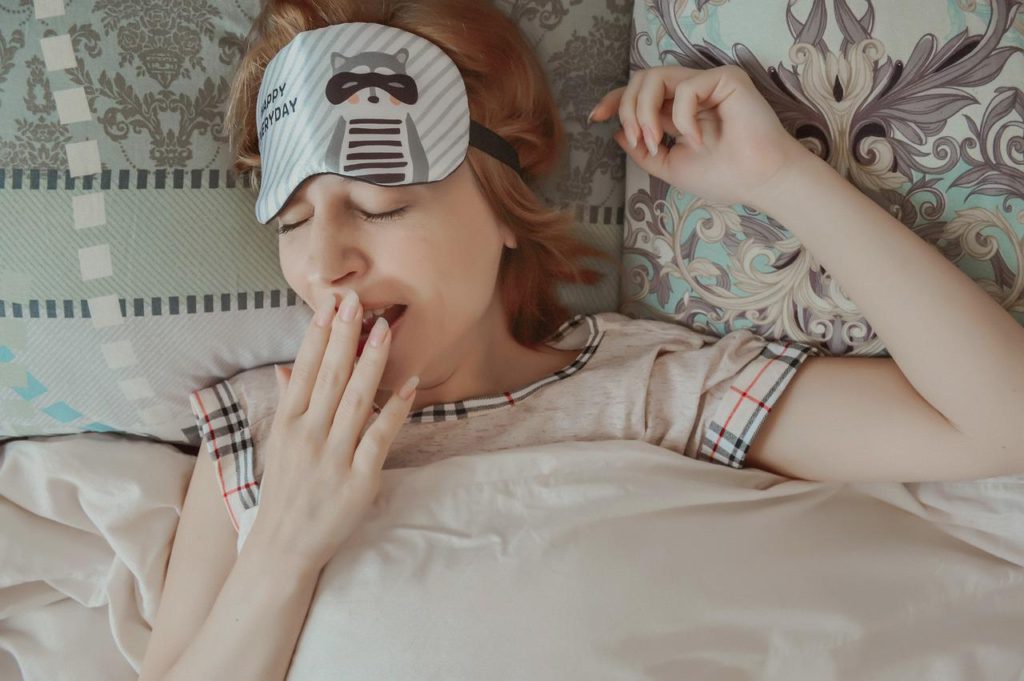
I’m relaxing. I’m not doing anything too stressful, I don’t have kids that I need to put to sleep, and I’m not running around the house doing a million chores in the evening. So there is a natural unwind that’s happening. But if you are finishing work late, putting the kids to bed, wrapping up and doing chores, your nervous system needs a little more time to switch itself off.
If you can give yourself an hour, if not two hours, of studying to wind your body down, then that is if you listen to the nervous system, podcasts that I’ve already done, it’s just feeling in your body that your body is unwinding. Whatever you need to do to achieve that. It might be a bath or a shower, reading a book, listening to a podcast or doing some sort of yoga Nidra or sleep meditation.
The opportunities are endless and might just be like curling up with a partner or your pet and watching something on TV with your blue light-blocking glasses and just allowing your nervous system to feel safe and ready for bed. You don’t want to be checking emails or something to engage with stressful material before bed, and you want to give your body space, which is very obvious. I think it’s not that people don’t know that they shouldn’t be doing this before bed.
It’s the discipline to do it. And if your nervous system tends more towards hypervigilance, it can be hard to slow down and switch off. So you may need to learn some techniques and practices and then have the discipline to practice them to achieve that state of unwinding in the evening.
Then just the little things you want to have a cool bedroom, our body temperature should naturally drop at nighttime, so if the bedroom is too hot, if the body is too hot, then that can have an impact on sleep. You may want to use some blackout blinds to have a nice dark sleep environment. If possible mobile devices out of the room, turn the Wi-Fi box off, make sure there are no little LED lights or anything still on in the bedroom, no TV in the bedroom, those types of things.
Maybe a blackout mask if needed. Just have a nice sleeping environment that allows you to feel comfortable and safe. If you do struggle to get to sleep, this is where you could use a sleep story, or you could do a yoga Nidra or little sleep meditation.
There are loads available, and Insight Timer is a really good resource. If you’ve got something like an aura ring, there are some sleep stories on the aura ring app. So there are a lot of different things that you can use.
I just listen to a podcast. I usually just put the minute timer on the podcast, start listening and inevitably, I’ve fallen asleep before the 30 minutes. The next question which may be on your mind is supplements.
Are there supplements that can help with sleep? The answer is yes; some supplements can help with sleep. But remember that supplements are supplementary to your other lifestyle practices.
When we’re thinking about supplements, we want to add supplements when we can check the following boxes. Have we got a good morning routine that stimulates that cortisol peak 30 to 60 minutes after waking? Is blood sugar balanced and stabilized throughout the day?
Are we creating a good unwind routine? Are we looking and paying attention to light exposure in the evening? Are we also taking our time during the day to reduce the windup of stress? I perhaps should have mentioned this earlier, I’ll mention it quickly now I talk about this a lot, and when I talk about nervous system regulation, it’s in the nervous system mini course. But many people are getting to the end of the day and thinking, “Oh, I need to unwind and feel less stressed.”
We really want to be checking in on ourselves at regular intervals throughout the day and discharging stress to reduce the buildup. Even if you’re taking a mid-morning break, lunchtime break, and afternoon break to discharge some of the buildup of stress and nervous system activation from the day, there’s going to be less unwinding that needs to happen at the end of the day. You want to ensure your blood sugar is stable and your nervous system is regulated throughout the day.
You’ve got that good evening to unwind routine, and then you can think, “Alright, maybe I can add some supplements here.” Different sleep supplements from experience work differently for different people. But I’ll share some of the ones I encourage my clients to try.
It’s very much a case of trying this one. “How does it work? A little bit, but not great. Okay, maybe we can add this one in as well. Oh, those two together work well. Or maybe none of these work. Let’s try this one instead.”
So there can be a little bit of playing around. It can be a little bit of trial and error. But some of my favourites are magnesium. Magnesium glycinate or magnesium threonate can be great; you can take it just 30 minutes before bed in powder or capsule form, usually about 150 or 200 milligrams. Please consult your healthcare practitioner, and ensure it’s safe for you.
One of my favourites is L-Theanine with lemon balm, and the specific product is by the brand Veridian. I usually take two of those, which works out to about 400 milligrams of L-Theanine. Just as I’m getting ready for bed, about 30 minutes before I fall asleep.
That works well for me. I’ve gone through phases of taking it on a daily basis, or sometimes I just take it if I’m working late and need a little bit of help to unwind my nervous system. Or for example, I teach a couple of yoga classes on a Thursday evening, and I get home late, and then I want to help my body drop into relaxation pretty quickly.
I’ll use the L-Theanine and lemon balm. If blood sugar regulates just regulation, shall I say during the night is an issue for you and could be impacting your sleep? Something like (inaudible) could be beneficial.
Maybe 900 milligrams 30-60 minutes before bed. You probably may hear a lot about 5HTP and 5-Hydroxytryptophan to help with sleep, and this can be a little bit hit and miss. The reason being is sometimes tryptophan can go down an inflammatory pathway.
I’ll try and explain this very briefly. But tryptophan can be used to make serotonin and melatonin, which is why it can be beneficial for sleep. These can also get diverted down another pathway, which can be associated with more sort of pain and inflammation and immune activation.
It’s usually if there’s a need for B3, a new need for vitamin B6, or just inflammation, in general, that can send tryptophan down the more inflammatory side of the pathway. So we do want to be careful; if you’re supplementing with tryptophan, and it’s not making you feel any better, or it’s making you feel worse, then that could be an issue for you and then it’s better rather stick to some of the other products that I’ve mentioned. I have also dabbled a little bit personally in melatonin.
Technically, as a nutritional therapist in this country, I am not allowed to recommend melatonin. It’s not something I could necessarily recommend on this podcast, but I can share my personal experience. In that, I would say I don’t have as much trouble falling asleep, but I would have issues waking at regular intervals during the night just for a little bit, not often for a long time.
I think melatonin did tend to help the overall quality of my sleep, having better quality sleep across the night. But it is something you kind of wants to be careful of. Eventually, I stopped taking it and switched to the L-Theanine and lemon balm.
I’ve not noticed much of a difference. Since I’ve done that, I feel that the L-Theanine lemon balm is equally good for me. Speaking of waking in the night, the thing I wanted to touch on is nervous system activation and immune activation.
The nervous system and the immune system are so closely linked that when the immune system is active, the nervous system is also going to be more activated because there’s a sense of threat. We can do all the unwinding, meditation, yoga Nidra, and somatic practices throughout the day to support the nervous system regulation. But if there’s a threat inside our body, like some infection, mould or a dysbiotic gut, we need to deal with that.
We can’t meditate on our way to better sleep when those things happen. This is when we want to consider whether there could be a gut issue. If your sleep gets worse around the full moon, when parasites tend to be more active, that could be a clue that maybe there’s a parasite, which is activating your immune system.
That’s impacting your sleep, and there can be imbalances in the microbiome that can impact sleep. I had a client who was struggling with her sleep. All she did was take a probiotic, and she said she was sleeping so much better just from taking a probiotic.
It’s not as easy in all cases, and she was fortunate to have such an easy, quick fix. But it highlights the role of gut bacteria and sleeps, so you can listen to the gut health podcast if there are any digestive issues. I’ve also got my gut health mini-course you can take.
That could be something that could positively impact your sleep. If there’s a mould, spore mycotoxin issue that can also stimulate histamine production, which can impact sleep, anything that’s sort of increasing histamine production, or mast cell activation syndrome, which I won’t talk in detail about today. All of this can impact sleep.
Anything that impacts the immune system and the body’s inflammatory environment will need to be addressed. We can modulate the immune system by working on that morning peak cortisol curve. But if there’s a threat or an infection, we need to remove it, all the other things are supportive, but we need to get to the root of the issue.
Where I’d like to finish today is to talk about the Chinese medicine clock. I am not trained as a Chinese medicine practitioner. I’ve only briefly touched on Chinese medicine through my yin yoga training because yoga is steeped in Chinese medicine.
But according to Chinese medicine, there are different times of the day associated with other organs and emotions. The idea being is that if sleep is a problem for you, say at nine o’clock at night, or one o’clock in the morning, or three o’clock in the morning, you can look and see which organ or which emotion is associated with the time that you’re always waking up or struggling to fall asleep. That could give some clues and insight into what may need help and support as you work towards better sleep.
Again, as I said, I’m not a Chinese medicine practitioner; I wouldn’t make put all my clinical decision-making on the Chinese medicine clock. But suppose a client is doing all the other things I’ve already spoken about in this podcast today. In that case, I might go, if you say it’s always 3 AM, well, 3 AM can be associated with the lungs, grief and sadness, or have you lost someone recently, and obviously, chronic illness is riddled with feelings of grief.
So there’s going to be a lot of grief for someone who’s chronically unwell. Maybe there’s some emotional support that’s needed there. Or maybe there’s some work we need to do around the lungs or breathing. I’ll go through the talk with you more for your interest in anything else just in case it rings any alarm bells and gives you some insight into how you can support your body.
The adrenal glands and the thyroid glands are the hours between 9 PM and 11 PM. This is associated with fear. Again, for me, fear says fight or flight, nervous system activation, we know that if someone’s stressed, if they’re worried if they’re afraid, that’s going to be activated for the adrenal glands, that’s going to make it maybe difficult for them to fall asleep.
That one makes a lot of sense, logically. The next is 11 PM to 1 AM, which is associated with the gallbladder. The gallbladder is really important for bile production, which we need for fat digestion; many of my clients have poor fat digestion.
It’s also involved in discernment and decision-making. Maybe if someone was always waking up between 11 PM and 1 AM, I might ask or check how their fat digestion is working. But maybe also ask if there are any big decisions I need to make.
1 AM and 3 PM are the liver associated with anger and frustration. Here, we might be thinking detoxification issues, or sort of any anger, sort of fight response stuck in the body, then 3 AM to 5 AM, is the lungs. The lungs are associated with grief and sadness just over the heart.
Again, here, we might think about how we support the lungs, is the person waking up at three to five coughing? Or is there something else going on? Is there a loss? Is there grief? Is there unprocessed sadness, and do we need to work somatically with that?
Finally, 5 AM to 7 AM is a large intestine. This is involved letting go. Maybe there are some digestive issues if the person wakes up at 5 AM, and that’s earlier than they would like; maybe we need to think about the gut. Or maybe we need to think about something more emotional, something they’re struggling to let go of, something they’re holding on to.
That is a nice way to finish up the episode today about the Chinese medicine clock. Hopefully, from listening to all the other guidelines today, you’ve got some things that you could work on, whether that’s your morning routine, your blood sugar during the day or at night time thinking about your unwind routine, and that sleeping environment, maybe playing around with some supplements starting to think if there’s maybe some inflammation or an immune response that needs to be addressed. Also, think about the Chinese medicine clock and if any of those hours and the organs and emotions resonate with what you’re going through right now.
As always, I hope you have enjoyed the episode. Please leave me a five-star review on iTunes; it will help other people to find the podcast who will benefit from this information, and please share it on your social media. You can always tag me anna_marsh_nutrition; let me know your biggest takeaways from the episode. Let me know if the episodes are helping you. And I’m very much looking forward to sharing with you in the next episode.


